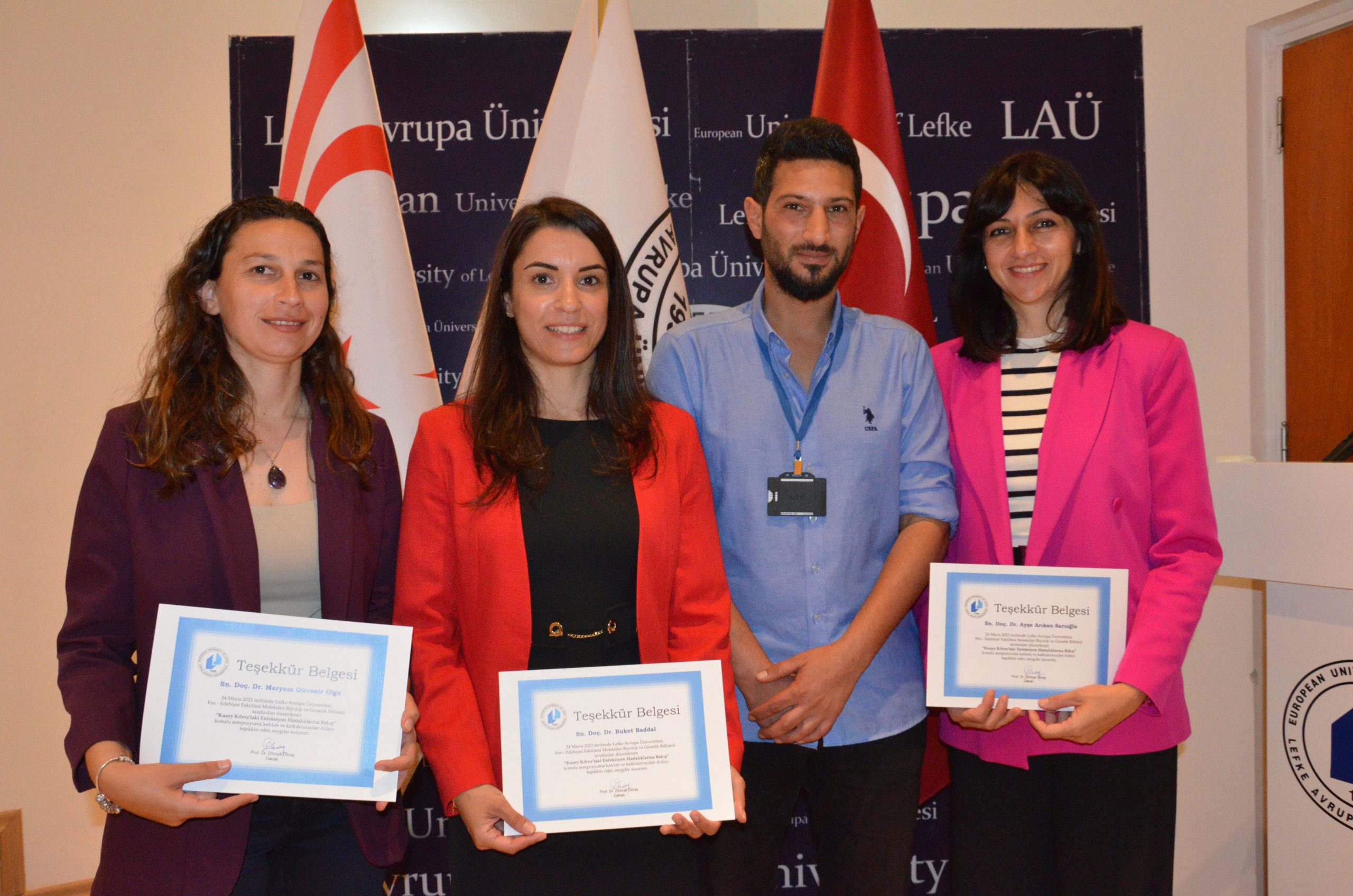A symposium on “Overview of Infectious Diseases in Northern Cyprus” was organized at EUL

European University of Lefke (EUL) Faculty of Arts and Sciences, Department of Molecular Biology, organized a symposium on “Overview of Infectious Diseases in Northern Cyprus”.
Assoc. Prof. Dr. Meryen Güvenir Olgu, Assoc. Prof. Dr. Ayşe Arıkan Sarıoğlu, Assoc. Prof. Dr. Buket Baddal contributed to the symposium held at EUL Cinema Hall as invited speakers. The symposium started with the introductory speech of Prof. Dr. Zihniye Okray, Dean of the Faculty of Arts and Sciences, and detailed information on Infectious Diseases in Northern Cyprus was given.
Assoc. Prof. Dr. Meryen Güvenir Olgu presented “Tuberculosis: Current Situation in Northern Cyprus”, Asst. Prof. Dr. Emrah Güler “History of Malaria in Cyprus and Current Situation”, Assoc. Prof. Dr. Ayşe Arıkan Sarıoğlu “Group A Beta Hemolytic Streptococcal Pharyngitis: Streptococcus pyogenes” and Assoc. Prof. Dr. Buket Baddal informed the students and participants on the topics of “Artificial Intelligence Applications in Infectious Diseases”.
At the symposium, ‘Tuberculosis: Current Situation in Northern Cyprus’, Olgu gave general information about tuberculosis infection, the current status of the infection in Northern Cyprus, and the impact of the COVID-19 pandemic on this infection in both Northern Cyprus and Turkey.
Güler touched upon the history of Malaria in Cyprus, which is considered one of the most important infectious diseases all over the world. In the early 1900s, malaria was very common on the island and caused serious deaths. Güler explained the ‘Malaria Eradication Project’, which was initiated between April 1946 and July 1949 to eradicate malaria infection on the island of Cyprus, and talked about the practices carried out throughout the island within the scope of the project. Güler also thanked to the aforementioned project, and stated that there have been no cases of local malaria in Cyprus since 1949, and also included the imported (foreign origin) malaria cases detected in Northern Cyprus in recent years.
Group A Beta Hemolytic Streptococcus (GABHS) (Beta infection), which has been causing serious infections, especially in children, in recent years, was explained by Arıkan. Information was given on the symptoms, diagnostic methods, and treatment of the infection, and the prevalence of GABHS pharyngitis in the TRNC was mentioned.
Finally, Baddal gave information about the relationship between artificial intelligence, one of the most important developments of our age, and infections. She also highlighted that the contribution of artificial intelligence to clinicians and laboratory workers in the diagnosis of diseases and how laboratory results can be reached in the fastest way by facilitating the diagnosis of infections.
At the end of the symposium, which was held in an effective and interactive way, all invited speakers were given a ‘Certificate of Appreciation’ and it was planned that such symposiums and meetings on infections seen in the TRNC should be increased, and therefore symposium series should be held.
